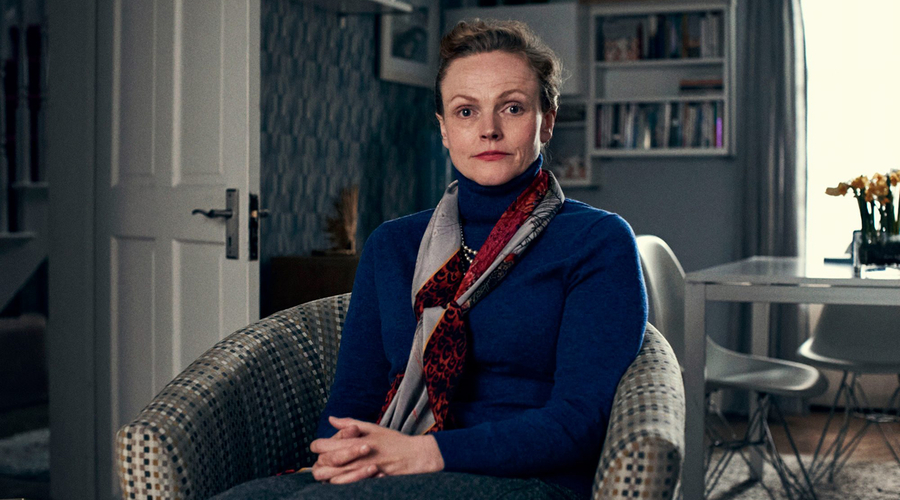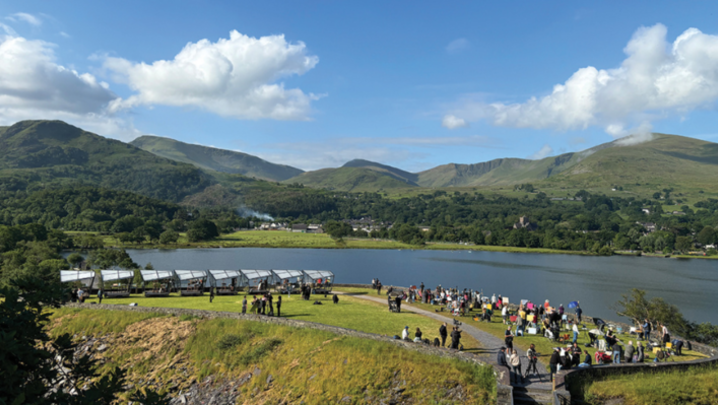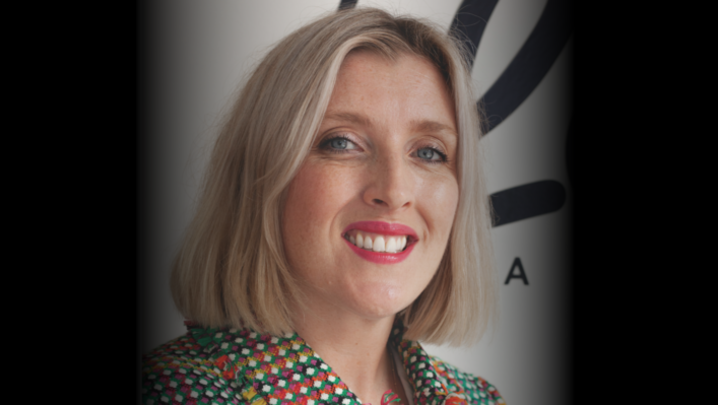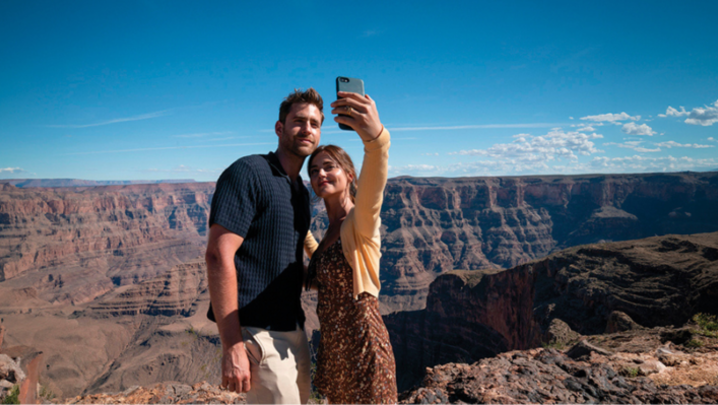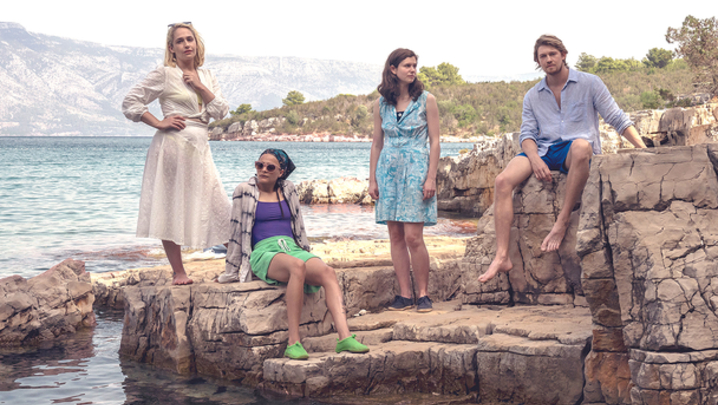Freelance sound editor Emma Butt discusses the trials and triumphs of her role with Matthew Bell.
Emma Butt works across drama and documentary, recently mixing the sound for the BBC One series Alan Bennett’s Talking Heads and Amazon Prime film Arsène Wenger: Invincible. Having spent the first decade of her working life in Dublin – where she worked on Lenny Abrahamson’s much-loved film What Richard Did – she now freelances in the UK.
What does the job involve?
There are two sides to the job: the dialogue and the sound effects. For the first, I take the dialogue recorded on set and remove the background noise, making it as clear as possible.
I also create an ADR (automated dialogue replacement) list for any lines of dialogue that we either can’t tidy up, have been mumbled or added to the script – actors have to re-record them in the studio. I then add sound effects not recorded on set such as cars passing by or footsteps.
Do you create these sounds?
Some of them, yes. But anything I can’t find in a sound effects library – usually sounds created by human movement – is created by a Foley artist. They mimic an actor’s actions to add authenticity to the sound in post-production.
How did you become a sound editor?
I wanted to work in music, so I studied sound engineering at university, Pulse College in Dublin, but the course also covered TV and radio sound.
I applied for work at music studios and post-production facilities, and Dublin post-production house Screen Scene was the first to offer me a job. I worked as a runner, then as an audio assistant and worked my way up the company. I stayed there for nine years.
What was the first TV programme you worked on?
An RTÉ programme for deaf viewers called Hands On – it sounds strange, but deaf programming still needs a sound mix. It was a good show to train on – the clients were lovely and it wasn’t complicated.
Why did you move to the UK?
I wanted to specialise in drama but there were three or four sound mixers ahead of me at Screen Scene. I decided to move to the UK, but it was difficult at the beginning because the industry here doesn’t pay much attention to Irish credits, even though I’d worked on big shows shot in Ireland such as Ripper Street and Game of Thrones.
I experienced bullying at a couple of production houses, before deciding to go freelance. I had no safety net – either I made it or went back to my family in Dublin. So far, it’s going well.
Is bullying a problem in the post-production sector?
Yes. Because of the intense pressure to meet delivery dates, you work really long hours with little support. It’s one of the reasons you see so few women, who are more likely to have caring responsibilities, on staff at facilities – they want you to be at their beck and call at all times.
How long do you have to work on a programme?
I work in both documentary and drama – starting out in Ireland, where the TV and film industry is small, sound editors don’t tend to specialise: they work across genres.
With drama, I get 10 days on an hour-long episode to edit the dialogue. That would include supervising the ADR sessions and cutting in the replacement dialogue. A sound-effects editor would get about the same amount of time.
With a documentary, you get three days, and often there’s only one person doing all of the sound editing. A lot of the time, I’m working on a programme right up until transmission.
Where do you work?
It’s a 50/50 split between home and facilities houses. It’s a good work-life balance.
What do you need to do your job?
A computer, a good set of speakers and sound software Pro Tools.
What’s the balance between technical know-how and artistic flair?
It depends on the content of a job; some programmes require more sound design and effects, and the editor therefore needs flair and creativity. A straightforward programme with talking heads demands good sound clarity, which requires greater technical skills.
Can everything, as people often say, be fixed in the edit?
It’s not always fixable – getting the sound right on set matters.
Are there any tricks of the trade you can share with us?
If there’s a battle scene in a show, the sound isn’t recorded on the shoot – and we don’t rely on stock sound effects. Instead, we use a “loop group” of about 10 actors, who come into the studio, stand in front of a mic, and scream and shout as if they’re fighting.
What are the best and worst parts of the job?
A happy client at the end of the sound mix – sound post-production is usually the last part of the process, so that’s where the client gets to see everything they’ve been working for on a programme come to life. It can be a beautiful moment.
The bad parts are long days, moving schedules and tricky clients, but the final mix makes up for all of those. I love the job – I couldn’t imagine doing anything else.
How has the job changed since you started?
I’ve been working in sound for 15 years; I started when I was 19. As a freelancer, you now have to be on call 24/7 – clients expect a reply from you at any time of the day.
Technology has improved over the years – we now have software that can identify the human voice and remove all the background noise around it.

The problem is that, although we still get the same amount of time to work on a programme, clients’ expectations have increased. Because of the new tech, they expect us to do more and more to clean and polish the sound. In the past, they were more accepting of “noisy’ pieces of dialogue.
What are the best things you’ve worked on?
Lenny Abrahamson’s What Richard Did, an absolutely beautiful movie. Recently, I loved working on the Amazon documentary Arsène Wenger: Invincible and BBC One’s Alan Bennett’s Talking Heads.
What advice would you give to someone wanting to become a sound editor?
You don’t necessarily have to go to university, but you do need to know how to use the software – get the free version of Pro Tools and practise. Then, apply to post-production houses for runner positions and work your way up the ranks.
You recently wrote a report, “Diversity in post-production sound”, for the Sir Lenny Henry Centre for Media Diversity – is sound becoming more diverse?
Gender diversity has improved but, in terms of black and ethnic minority diversity, we have a long, long way to go – and it’s even worse for disability. Some companies are really good and look beyond middle-aged white men, but most facilities don’t.
A lot of sound specialists are freelance but the people who hire tend to rely on their contacts books, which are filled with the names of people they’ve worked with for the past 10 or 20 years, when there was little diversity in the industry. They need to change the way they hire.
What TV series or genre would you love to work on?
A space show – we don’t know what space sounds like, so I would get to make up sounds.
Sound editor Emma Butt was interviewed by Matthew Bell.

